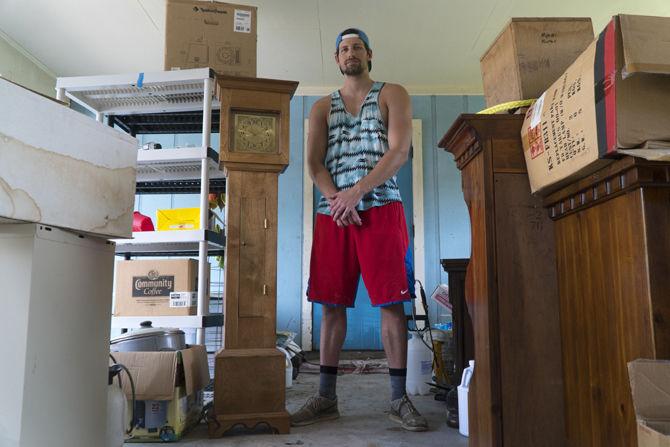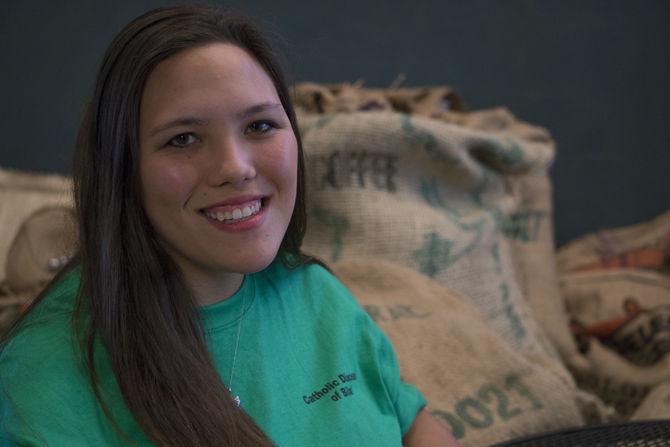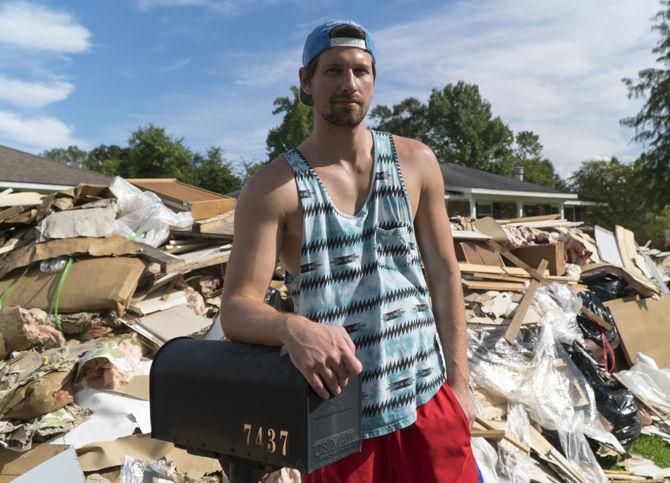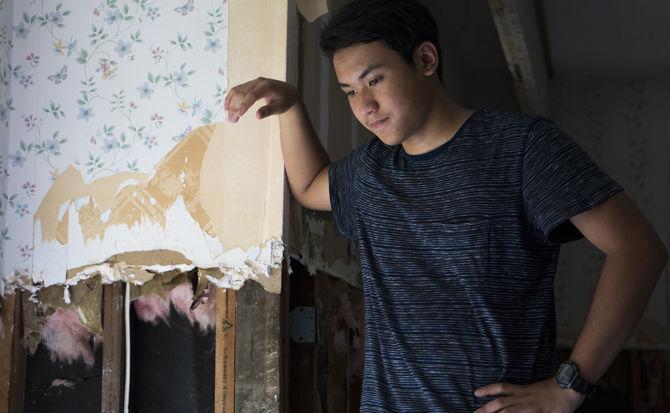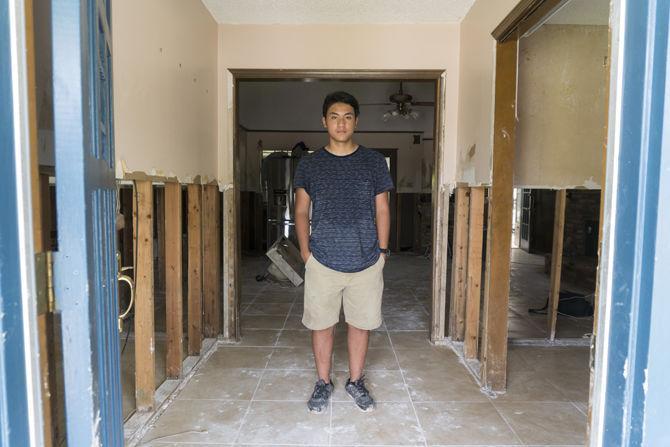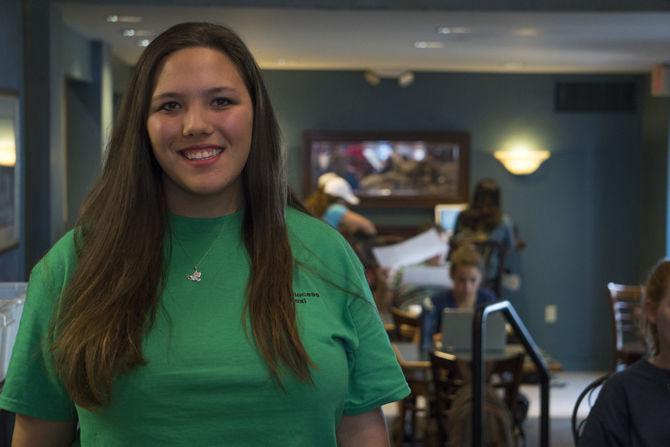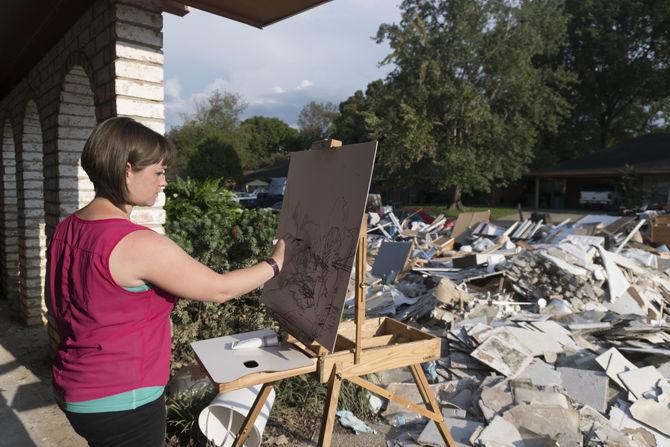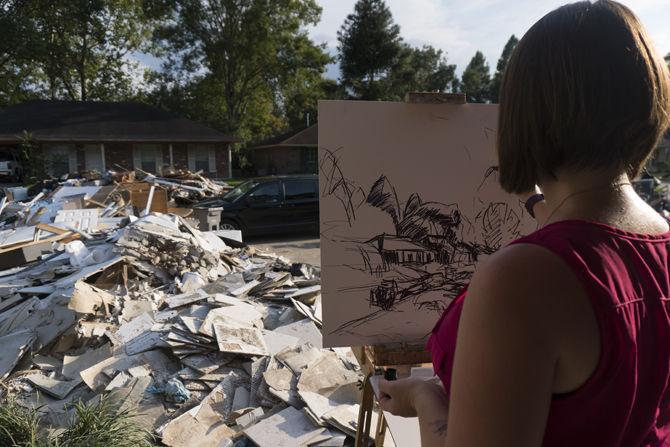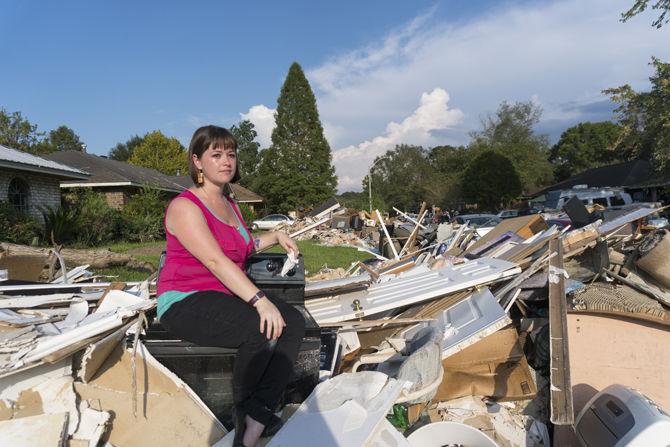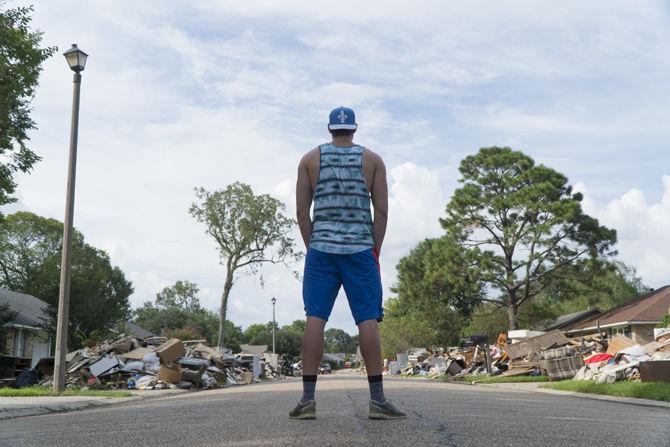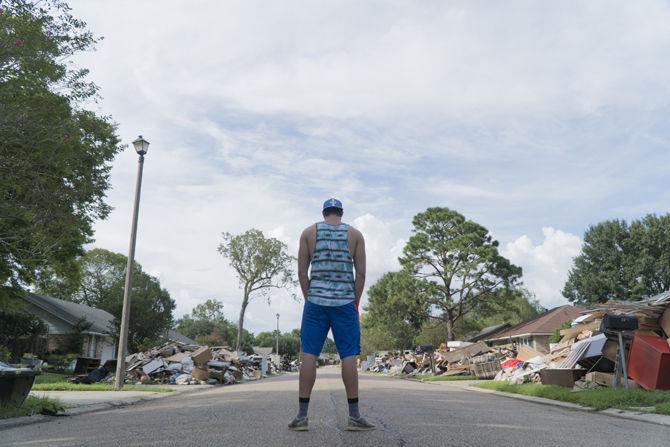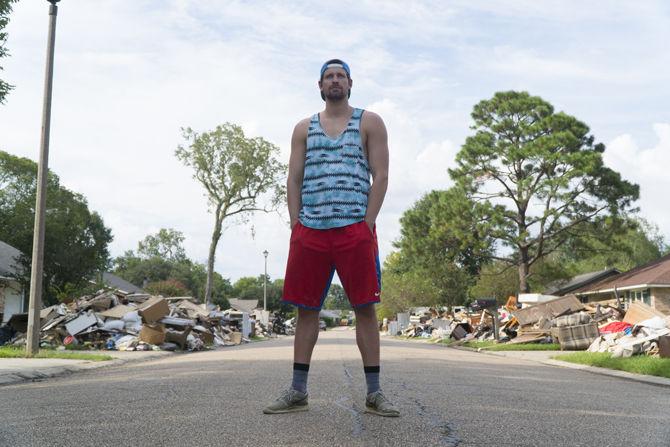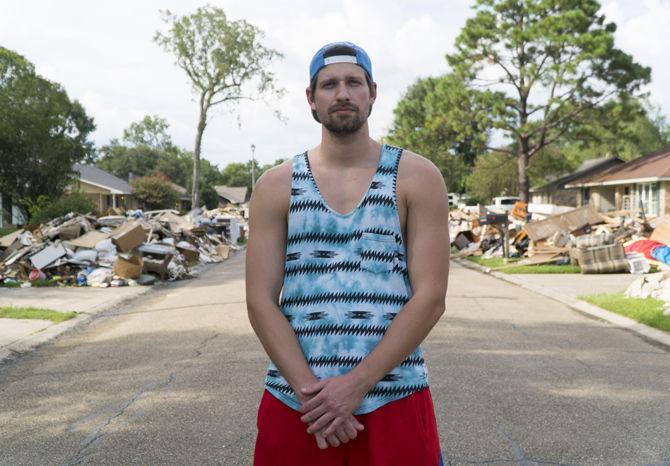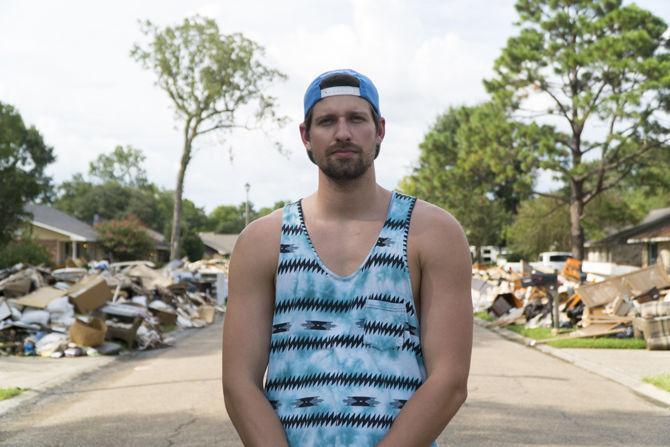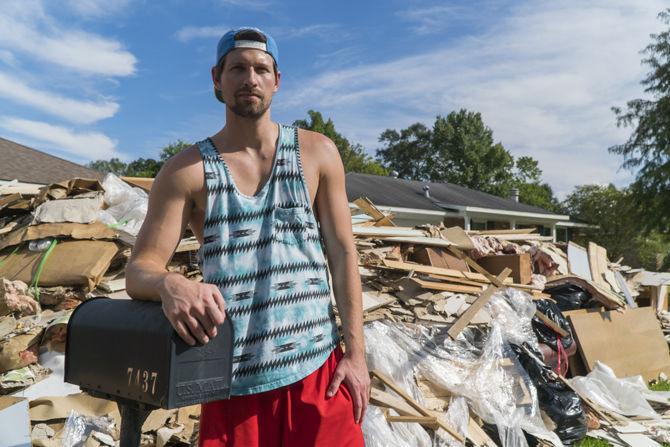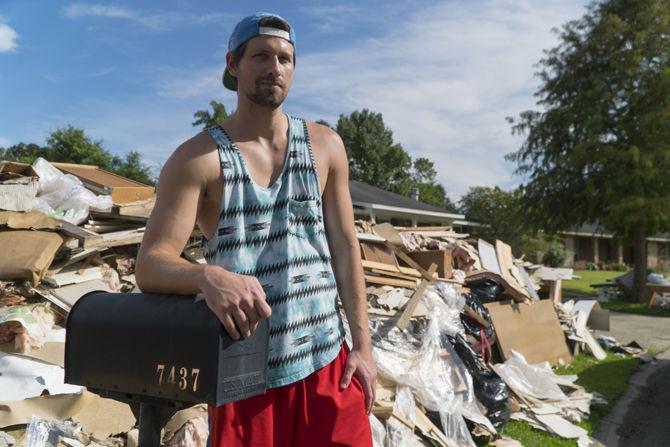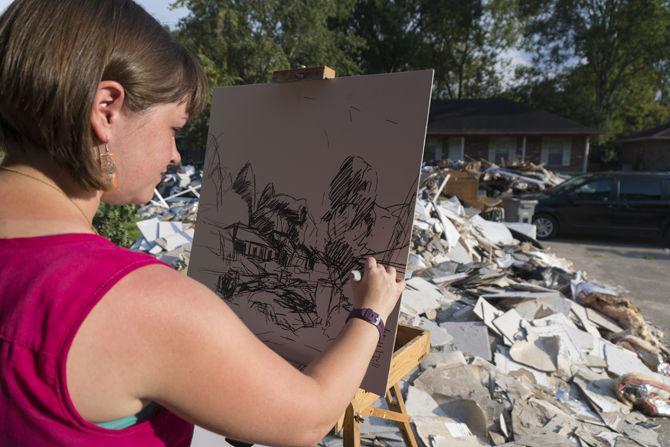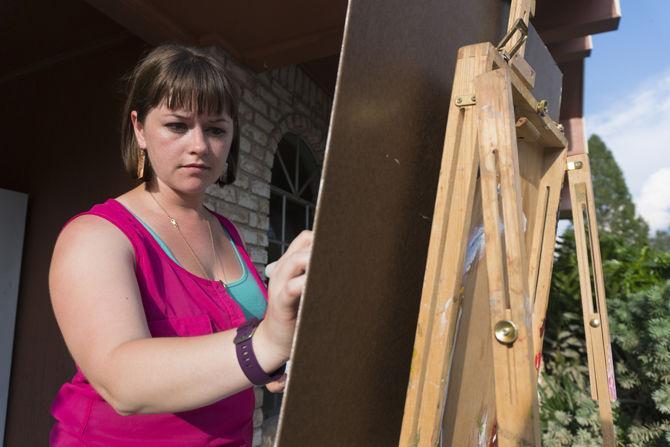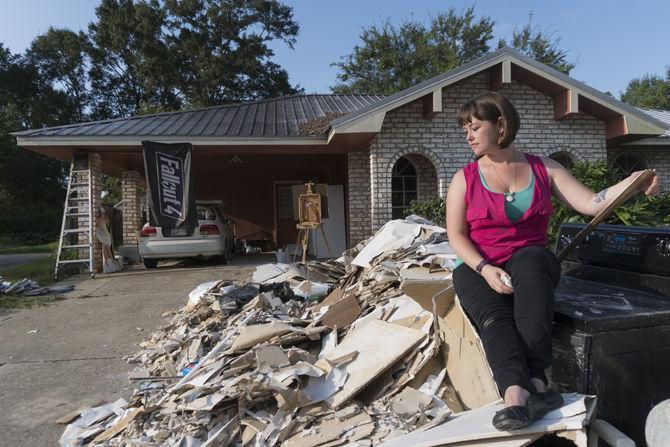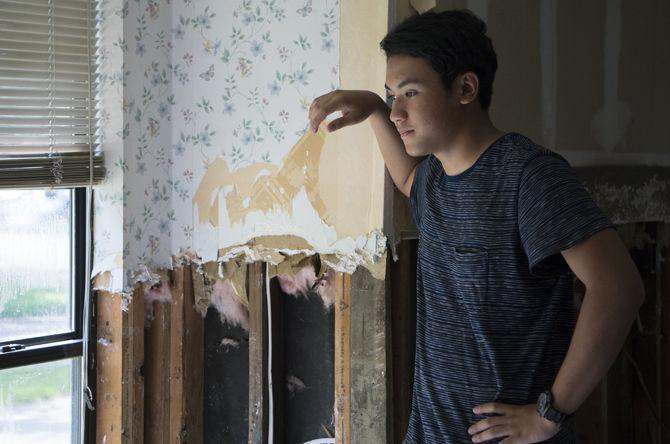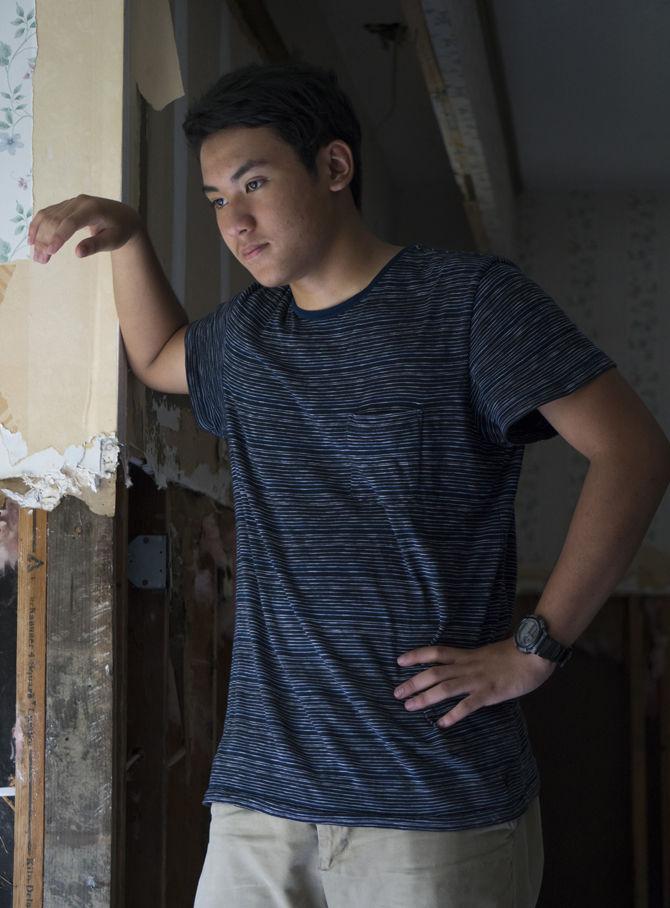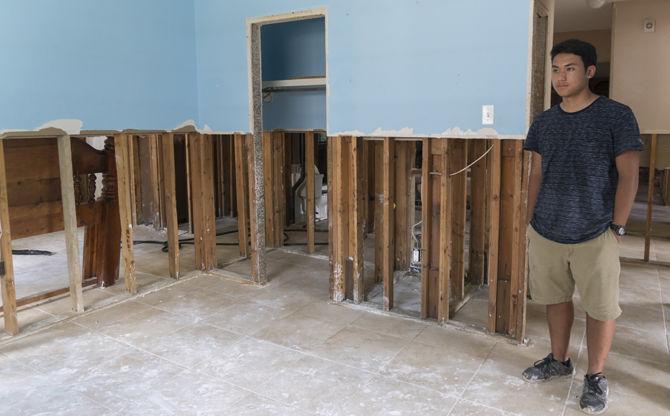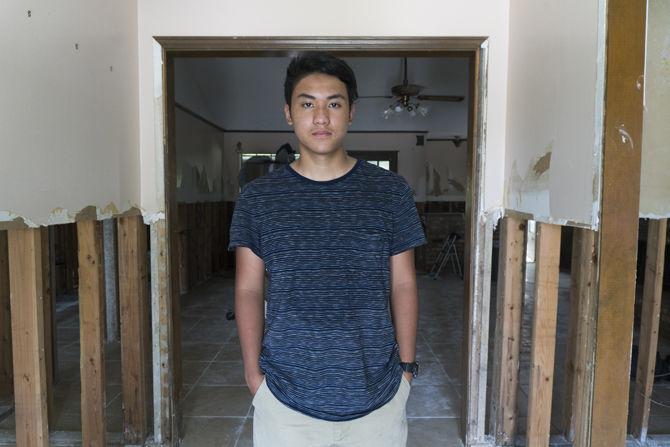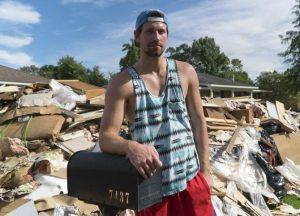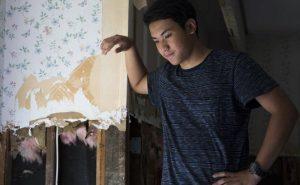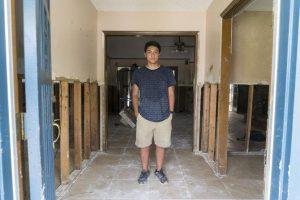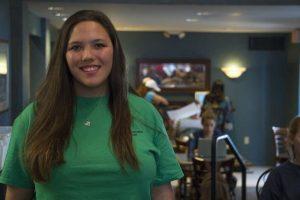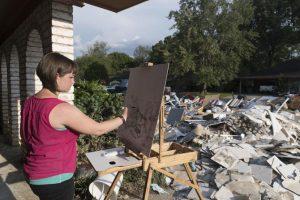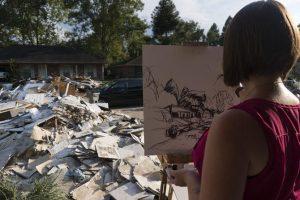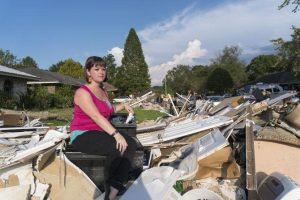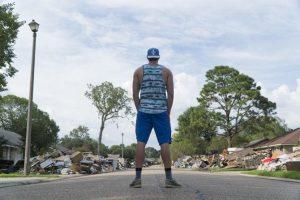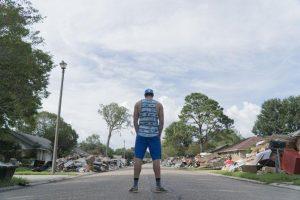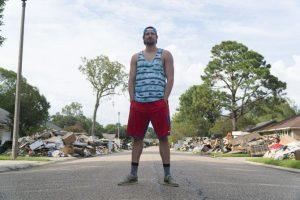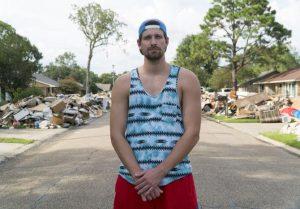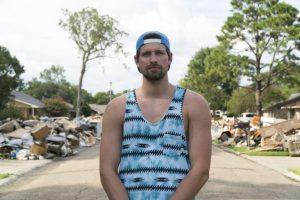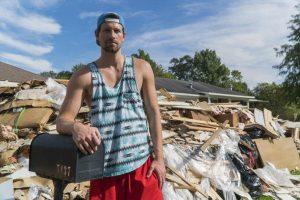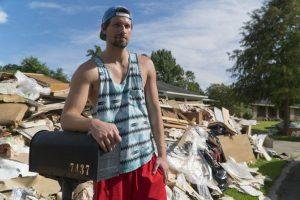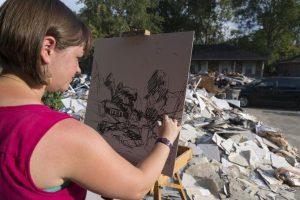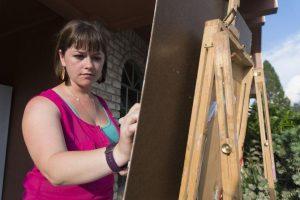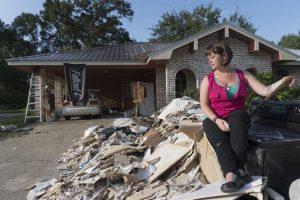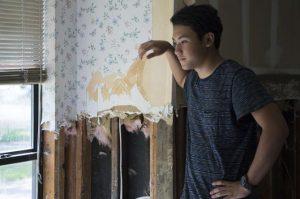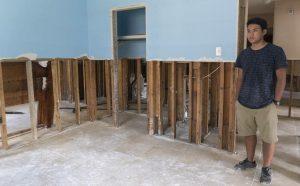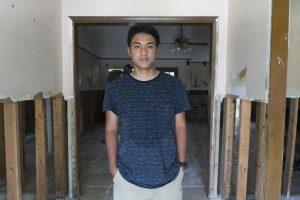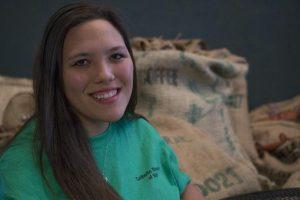The August storms in Baton Rouge and throughout the surrounding parts of southern Louisiana hit all at once, leaving areas of flooded homes in its wake.
It took days for the floodwaters to recede, but it’s taken weeks — and will take many weeks to come — to recover from the widespread destruction left by this unexpected natural disaster. Many University students and their families were forced to juggle the recovery process while preparing for school to start.
Below are four perspectives from LSU students and their families about the recent flooding and the recovery process.
Nick Holt
Nick Holt, a mechanical engineering junior, evacuated his neighborhood with his family on Aug. 13 as water began to creep up the street and eventually into his home. On Aug. 15, Holt returned to begin the slow process of gutting the interior. About two weeks later, Holt is still surrounded by piles of furniture and scraps of sheetrock, soaking in the heat of midday.
“If I had to pinpoint something [meaningful from the flood], help is the biggest thing,” Holt said. “Possessions are easily replaceable, and to be honest, once you start demolishing your house, you’ll kind of realize, ‘Well, I don’t really need all this stuff,’ and you figure out what … the most important things [are] and what you can live without. I had a bunch of friends come over and help us, and that’s what I appreciate the most.”
Holt reminisced about several large clocks his grandfather had hand-carved; like most else in his home, these clocks were lost to water damage. In the face of this tragedy, Holt feels he has has gained a new perspective on life.
“A lot of people realize now that everything is taken for granted — even the smallest things like food and water. You really don’t realize how much stuff you have until you lose it all,” Holt said. “It puts everything into perspective — you’re forced to go back to simplicity when something like this happens. We have to go back to our roots as humans, without having the luxuries … that we don’t even see as luxuries anymore.”
Long Le
Long Le is a student at Lee High School and his brother Van is a mechanical engineering junior. The Le family was rescued by boat when their house flooded, and they stayed overnight in a shelter.
“While I was in the shelter, I was worried about other people, how we were going to get through this and how long it would take, but I tried to relax and get through it slowly… [Staying in the shelter] showed me how good people are, how caring they were to other people, and how welcoming they were,” Le said. “It was really nice to have other people who could have our backs.”
High school students in Baton Rouge received almost an extra month of summer due to the flooding. Le was scheduled to start school on Aug. 10 but instead is beginning classes Sept. 6. While this would usually be cause for celebration among students, Le said he was anxious for the school year to start and ready to begin a regular routine.
“I would really like to go back to school,” he said. “Having an extra month is a little tiring. Normally, right before school starts, you kind of don’t want to go to school but you’re also kind of excited. Now, I just really want to get back into it and have something normal.”
Kayla Logos
Kayla Logos is a petroleum engineering senior from Mississippi who returned to Baton Rouge for a few days before the start of classes to help with the volunteer effort.
“I knew that everything had gotten flooded, but I didn’t expect the amount of water to be as high as it was,” she said. “We looked at one of the buildings, and [the water] was up to my shoulders. That was when I realized that they had lost everything. [I felt] thankful that I had a home. I was having flashbacks of [Hurricane] Katrina.”
Logos, an out-of-state student, was living in Mississippi when Hurricane Katrina made landfall in 2005. During the storm, a tornado swept through Logos’ neighborhood and dumped rainwater into her house. Seeing similar destruction among the neighborhoods of Baton Rouge brought forth her empathy. Logos and her family also had to gut their house and pull out sheetrock after the tornado.
“I was young when Katrina hit, so all I knew [when gutting the house] was that I was in my house swinging a hammer and having fun,” she said. “But [helping with the flood effort] was really humbling. These people don’t know what the next step is. They don’t know when someone will come to do repairs. And it isn’t just one house, it’s an entire block.”
Kelsey Livingston
Originally from California, University alumna Kelsey Livingston graduated from LSU on Aug. 5, planning to marry her fiancé and settle down soon after. But on Aug 13, 3 feet of water entered her Baton Rouge home. On Aug. 16, Livingston found herself sifting through a pile of destroyed artwork. In a matter of days, almost every bit of art she had created in her tenure as a graduate student in printmaking was reduced to nothing. As floodwaters wiped the slate clean, Livingston wondered if she could still envision herself living in Baton Rouge.
“I had three studios’ worth of just equipment in [a room of my home], and I was still going through it,” she said. “It had only been a week [since I graduated], so a lot of it was just packed in there storage-style while I figured out what I needed and didn’t need. I had easily thousands of dollars in paper alone. All of the art from my three years here was obliterated. Everything in my studio was destroyed, so the whole purpose for me coming out here was wiped away.”
Livingston poured three years of her life into this artwork. She didn’t just lose some pretty paintings in the flood; she lost her source of income.
“It’s one of those things that I can only really commiserate about that to my other art friends because to everyone else, art feels like a hobby” she said. “But when you’re a bread-and-butter artist, that’s not a hobby, that’s your livelihood. I couldn’t actually go through [the art] myself so I had my friends come and clear it out for me because that was the one room where I couldn’t look at it. I had to just shut the door and walk past it and pretend it wasn’t there.”
Livingston had never experienced a natural disaster of this caliber before. She moved to Baton Rouge from California to complete her Master of Fine Arts at LSU. She had to learn about sandbags and how to make them. Livingston spent much of the flood unsure of exactly what she was supposed to do, so even in the aftermath Livingston dealt with surprises and challenges.
“No one tells you about everything that’s coming into your house,” she said. “You think water, that’s pretty obvious. Maybe swampy water. No one tells you that there’s going to be your body weight plus some in earthworms. Both alive and half alive and super dead and rotting in corners, in everything. Worms. There were crawfish in the house, I don’t know how. There’s a swamp in your house. The smell was unbelievable.”
Livingston originally planned to set up a donation account for Doctors Without Borders for friends and families to donate to instead of purchasing wedding gifts. She said her and her fiancé felt they already had enough of their own, but now she’s unsure what to do considering she’s lost everything. Livingston wants to donate the money but is now in so much need that she’s torn.



